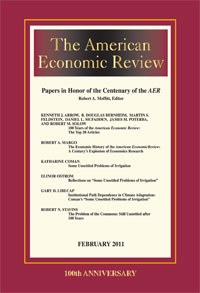
Plug, E. (2004). Estimating the effect of mother's schooling on children's schooling using a sample of adoptees American Economic Review, 94(1):358--368.
-
Affiliated author
-
Publication year2004
-
JournalAmerican Economic Review
This paper examines the impact of parental schooling on the child¿s schooling and uses adoptees to get rid of persistency effects caused by the parents¿ genes. The results indicate that, especially for mothers, inherited abilities and assortative mating play an important role in the intergenerational transmission of schooling. In fact, for adoptees I found no treatment effect for the mother¿s schooling, conditional on her husband¿s schooling. It should be noted, however, that the WLS data on adoptees and their parents do not possess the properties of a clean and well-de¿ ned experiment, and that obtained results require a careful interpretation. There are two potential dangers to an adoption experiment. First, adoptees and adoptive parents are different from other children and their parents. This argument suggests that my maternal schooling estimates may be biased and suffer from omitted variables, but I have little indication of what these might be. The sensitivity analysis ruled out a number of plausible candidates. Second, adoptees are not always randomly assigned to their adoptive parents. This argument suggests that a portion of what is interpreted as the impact of the parent¿s schooling may in fact be genetic. With respect to paternal schooling estimates there is some merit to this view. However, with respect to the estimated maternal effect it is not. Nonrandom assignment and corresponding upward bias form no danger when interpreting the absence of maternal schooling effects. In all, these results, in combination with the parallel finndings of Behrman and Rosenzweig (2002) using twins, support the idea that the positive influence of mother¿s schooling on that of her child disappears when heritable abilities and assortative mating are taken into account.